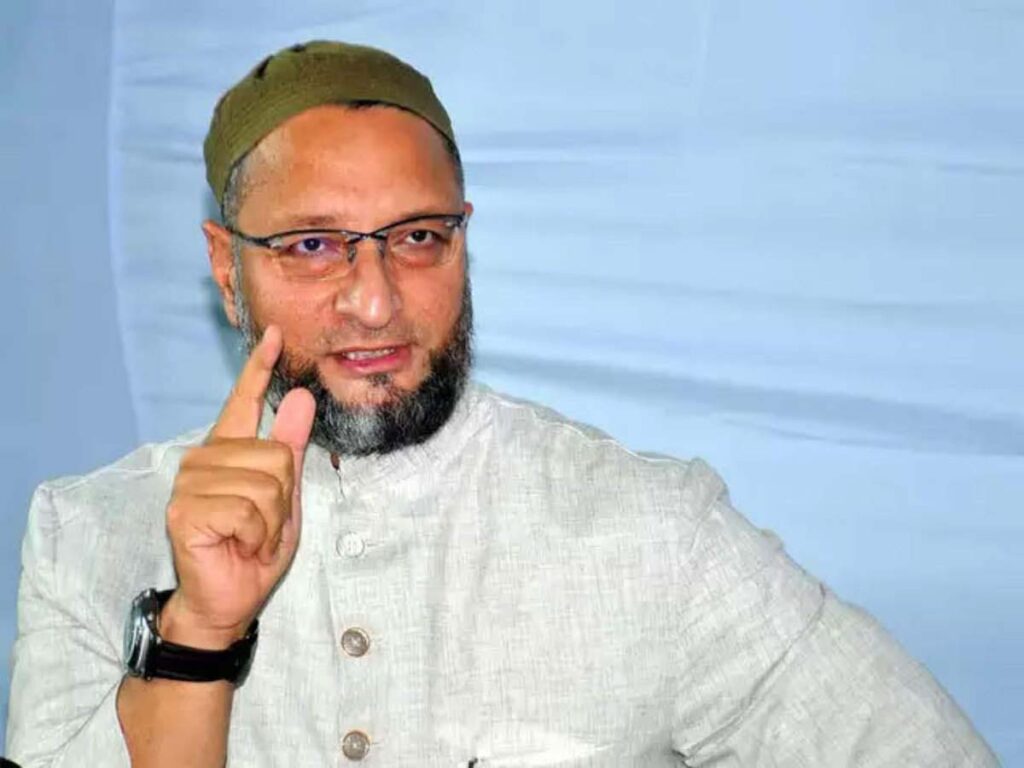In a significant development in Indian politics, Asaduddin Owaisi, the leader of the All India Majlis-e-Ittehadul Muslimeen (AIMIM) and a Member of Parliament from Hyderabad, has sparked a crucial debate on the ‘One Nation, One Election’ proposal. Through a social media platform, on Monday (January 15), Owaisi conveyed his concerns about the proposal, which he believes could be a disaster for Indian democracy and federalism. This bold statement has brought the topic into the limelight, raising pertinent questions about the practicality and implications of simultaneous elections in the world’s largest democracy.
Owaisi’s Letter: A Strong Opposition to ‘One Nation, One Election’
Addressing the high-level committee on the ‘One Nation, One Election’ initiative, Owaisi, in his letter, stressed his position as a parliamentarian and AIMIM chief. He detailed his substantial objections, based on constitutional law, against the proposal. These objections were not only presented to the committee but were also previously communicated to the Law Commission of India on June 27, 2018, during its consultation phase. Additionally, Owaisi included an article he wrote for the Hindustan Times on March 12, 2021, further elaborating his stance on this critical issue.
The Core of the Discussion: Ignoring the Essentials of Democracy
In his correspondence, Owaisi lamented the necessity to reiterate his objections – both preliminary and fundamental – before the High-Level Committee (HLC). He criticized the approach of various consultations on the matter, pointing out that they have overlooked the primary requirement of creating law in a democracy, which justifies the need for a policy. He noted that neither the parliamentary standing committee, the NITI Aayog, nor the Law Commission has adequately justified the need for such a significant shift. Instead, discussions have been more focused on how the proposal could be implemented, rather than if it should be.
‘A Solution in Search of a Problem’: Questioning the Proposal’s Rationale
Owaisi’s critique extends to the terms of reference of the HLC itself, arguing that it too is flawed. He observed that the focus has been on creating a legal and administrative framework for conducting simultaneous elections, without adequately considering whether such a fundamental change is constitutionally acceptable within India’s democratic framework. He describes the initiative as a solution in search of a problem, implying that the proposal may be addressing a non-existent issue.
Elections: More Than a Formality in Democratic India
Highlighting the sanctity of elections in a democratic setup, Owaisi emphasized that elections are not mere formalities and voters are not rubber stamps. He argued that the electoral democracy is the pillar upon which the constitutional edifice of India stands. He warned against subjecting elections to administrative convenience or economic feasibility, suggesting that doing so could lead to absurd consequences. He raised rhetorical questions about the potential implications of prioritizing financial or administrative considerations over constitutional necessities, questioning the logic of such an approach.
Disclaimer : इस न्यूज़ पोर्टल को बेहतर बनाने में सहायता करें और किसी खबर या अंश मे कोई गलती हो या सूचना / तथ्य में कोई कमी हो अथवा कोई कॉपीराइट आपत्ति हो तो वह jansandeshonline@gmail.com पर सूचित करें। साथ ही साथ पूरी जानकारी तथ्य के साथ दें। जिससे आलेख को सही किया जा सके या हटाया जा सके ।














